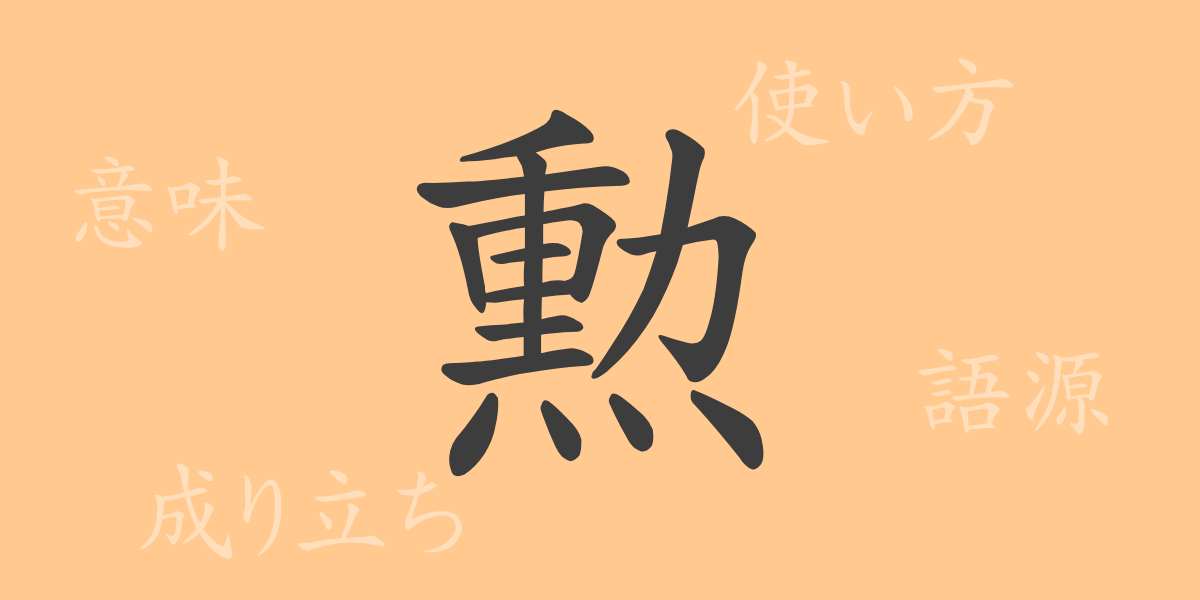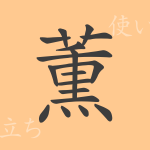Japanese written culture has developed uniquely over centuries, with common kanji characters deeply embedded in everyday life. This time, we spotlight the commonly used kanji “勲(くん)” to explore its profound meanings and background. Let’s delve into the world of “勲(くん),” examining its origins, usage, and expressions that highlight its significance in Japanese history and culture.
Origin of 勲(くん) (Etymology)
The kanji “勲(くん)” originated from ancient China, rooted deeply in historical contexts. Initially, “勲(くん)” meant “merit” or “achievements” and was used to honor military accomplishments. The character can also be written as “勳(くん),” composed of “力(ちから),” meaning strength, and “勞(ろう),” meaning reward. This combination conveys the idea of recognizing achievements accomplished through great effort.
Meanings and Uses of 勲(くん)
The kanji “勲(くん)” is primarily used to denote “merit” or “decoration” and is commonly seen in words that celebrate distinguished achievements. Specifically, it appears in terms like “勲章(くんしょう)” (medal of honor awarded for notable achievements) and “勲功(くんこう)” (merit). In Japan, this kanji often surfaces during the spring and autumn honors ceremonies, symbolizing social recognition and honor.
Readings, Stroke Count, and Radical of 勲(くん)
Understanding the readings, stroke count, and radical of the kanji “勲(くん)” is essential, as it is part of the common kanji used in Japan.
- Readings: On’yomi (Chinese reading) – “クン(くん)”; it does not have a Kun’yomi (Japanese reading).
- Stroke count: “勲(くん)” has a total of 15 strokes.
- Radical: The radical is 力(ちから), meaning strength or power.
Idioms, Expressions, and Proverbs Using 勲(くん)
The kanji “勲(くん)” appears in various idioms, expressions, and proverbs in Japanese. Here are a few examples:
- 勲章(くんしょう): A medal awarded by the state or a public organization for merit.
- 勲功(くんこう): Notable achievements in wars or significant efforts.
- 勲労(くんろう): Achievements accomplished through considerable effort.
- 無勲無罪(むくんむざい): Neither merit nor crime, representing ordinariness.
Conclusion on 勲(くん)
The kanji “勲(くん)” plays a crucial role in Japanese culture, symbolizing merit and honor. Its meanings and uses reflect long-standing values and social systems, carrying forward the spirit of recognizing significant achievements. Receiving a medal of honor remains a major accolade in one’s life, and the value of “勲(くん)” in Japanese society continues to be cherished. Through this article, we hope you have gained a deeper understanding of the background and significance of “勲(くん).”

























